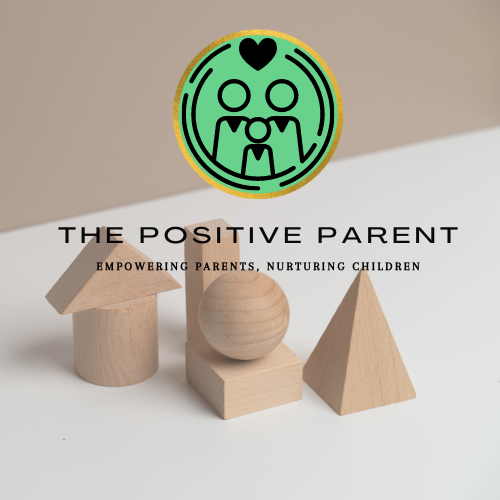The Power of Parenting Coaching in Overcoming Sleep Issues in Children
Introduction
Sleep troubles are a typical concern among parents when it comes to parenting children. Parents may confront challenges such as difficulty falling asleep, frequent night awakenings, or refusal to sleep alone. These issues not only have an impact on a child's well-being, but they can also upset the routine and peace of the entire home. Parenting coaching has developed as a significant resource for parents coping with their children's sleep patterns in recent years. In this blog post, we will look at the benefits of parental coaching in treating sleep issues and highlight some effective ways to teach children to sleep well.
Understanding the Importance of Sleep for Children
Before getting into the role of parenting coaching, it is critical to recognize the importance of sleep in the overall development of children. Sleep is important for a variety of reasons, including physical, cognitive, and emotional well-being (Owens, 2021). Adequate sleep promotes healthy development, boosts the immune system, improves memory consolidation, and improves emotional stability. As a result, managing sleep difficulties in children is critical to promoting healthy growth and development.
The Role of Parenting Coaching in Overcoming Sleep Issues
Tailored Guidance and Strategies
Parenting coaches, who are trained in child development and behavioral tactics, provide personalized advice to parents who are struggling with their kid's sleep issues. Parenting coaches analyze each child's specific needs, family dynamics, and sleeping environment using a supportive and nonjudgmental approach. Coaches can build individualized techniques that help parents effectively treat their children's sleep disorders by taking these specific aspects into account (Lewallen & VonEye, 2019).
Establishing Consistent Bedtime Routines
Parenting coaches help parents build consistent nighttime routines as one of their major tactics. Consistency is important because it provides infants with cues signaling the start of sleep, allowing their bodies to rest (Mindell, Sadeh, Wiegand, How, & Goh, 2010). Coaches assist parents in setting peaceful pre-bedtime rituals that include activities such as reading, bath time, or soft music, resulting in a calming and consistent sleep habit.
Promoting Healthy Sleep Hygiene
Parenting coaches stress the necessity of promoting good sleep hygiene habits. Educating parents about proper sleep surroundings, such as creating comfortable sleeping circumstances, avoiding external stimuli, and maintaining a consistent sleep schedule, can help greatly with sleep issues (Mindell et al., 2018). Furthermore, coaching assists parents in recognizing and discouraging sleep-disturbing behaviors, such as excessive screen time before bed.
Encouraging Sleep Independence
Another beneficial part of parenting coaching is assisting parents in encouraging their children's sleep independence. Coaches provide skills to help children gradually transition to falling asleep on their own and encourage them to self-soothe when they wake up during the night (Mindell, Kuhn, Lewin, Meltzer, & Sadeh, 2006). Teaching children how to go to sleep and wake up independently allows them to have more consolidated sleep and lowers sleep disruptions.
Addressing Underlying Issues
Parenting coaching also gives parents the tools they need to identify and treat underlying issues that may be contributing to sleep troubles. A child's ability to sleep may be hampered by emotional or behavioral issues, separation anxiety, or even physical discomfort (Lewallen & VonEye, 2019). Coaches can help parents get insight into these potential underlying problems and give appropriate resolution solutions by completing a complete examination.
Conclusion
Sleep problems in children can have a negative impact on their overall well-being and family dynamics. Parenting coaching has emerged as an important resource in addressing these challenges, providing personalized advice, targeted tactics, and evidence-based practices to support healthy sleep habits. Coaching assists parents in resolving sleep problems in children by emphasizing consistency in bedtime rituals, supporting proper sleep hygiene, cultivating sleep independence, and addressing underlying concerns. Bedtime can be transformed from a dreaded occasion to a calm and revitalizing ritual for the entire family with the help of parenting coaches.
Find out how I can help your family at The Positive Parent
References:
Lewallen, A. C., & VonEye, A. (2019). An Introduction to Parenting Coaching: Insights, Strategies, and Resources for Effective Parenting. Springer Publishing Company.
Mindell, J. A., Kuhn, B., Lewin, D., Meltzer, L. J., & Sadeh, A. (2006). Behavioral treatment of bedtime problems and night wakings in infants and young children. Sleep, 29(10), 1263-1276.
Mindell, J. A., Sadeh, A., Wiegand, B., How, T. H., & Goh, D. Y. (2010). Cross-cultural differences in infant and toddler sleep. Sleep medicine, 11(3), 274-280.
Mindell, J. A., Li, A. M., Sadeh, A., Kwon, R., & Goh, D.





Comments
Post a Comment